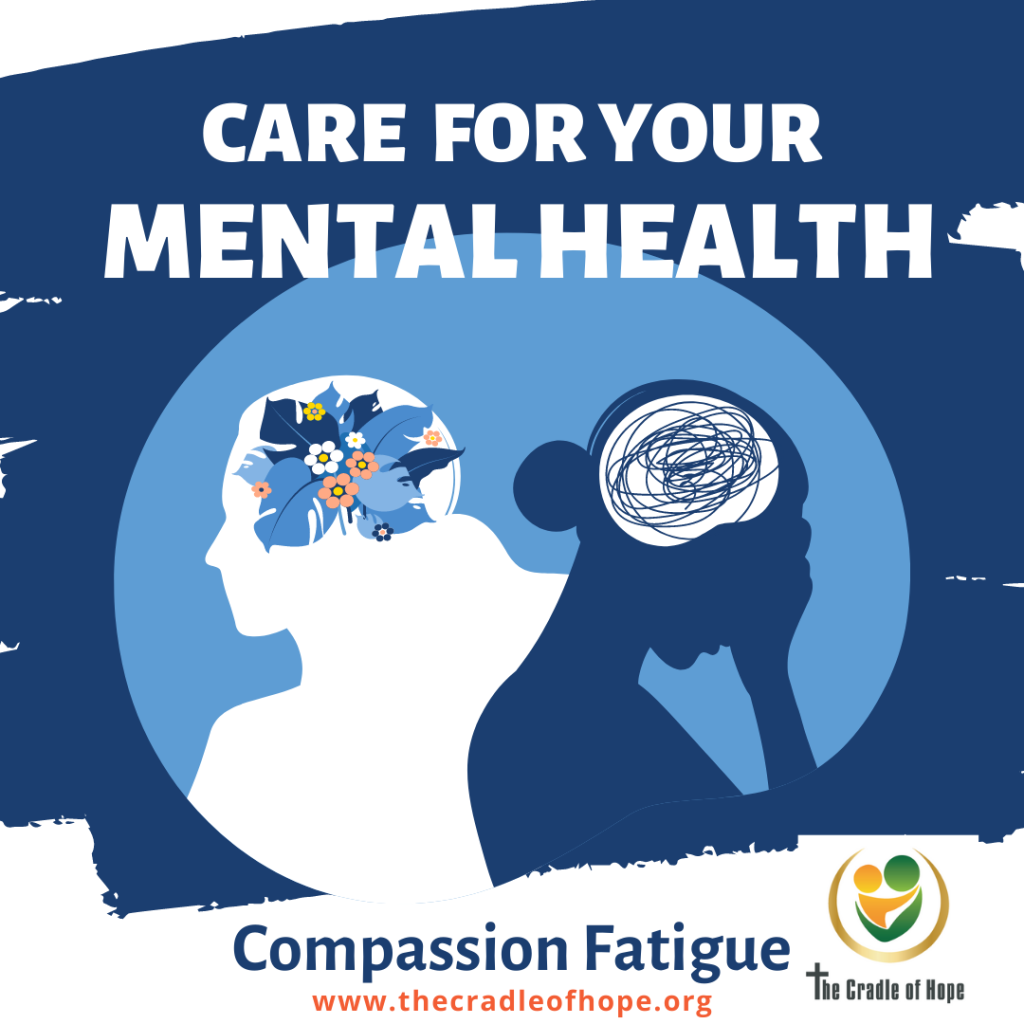Compassion fatigue, also known as secondary traumatic stress, is a condition that affects individuals who provide care or services to those who are suffering, such as healthcare workers, first responders, social workers, counselors, and other helping professionals, as well as staff members and volunteers of charity organisation such as THE CRADLE OF HOPE. It is a type of burnout that occurs when a person is exposed to traumatic events or stories for an extended period. Compassion fatigue can lead to physical, emotional, and spiritual exhaustion and harm an individual’s well-being.
Compassion fatigue is caused by direct exposure to traumatic events, such as working in a hospital or emergency room, or can be caused by indirect exposure, such as hearing stories from people in desperate and vulnerable situations. The condition is often caused by a combination of factors, including the intensity and duration of the traumatic experience, the individual’s emotional response to the event, and the lack of adequate support and resources.
Signs of compassion fatigue include physical exhaustion, feeling emotionally drained, difficulty concentrating, irritability, depression, anxiety, and an inability to connect with others. They may also experience feelings of guilt, shame, or helplessness.
To manage compassion fatigue, it is vital for those providing care or services to create a plan for dealing with difficult situations and to take steps to protect their well-being. It includes taking breaks, setting boundaries, and seeking support from family, friends, and colleagues. It is also important to practice self-care, such as getting enough sleep, eating healthy, exercising, and engaging in activities that bring joy.
This plan should include strategies for managing stress, such as deep breathing, meditation, and mindfulness exercises. It should also include strategies for dealing with difficult emotions, such as reaching out to a supportive person, journaling, and engaging in activities that bring joy.
Suppose an individual ignores the signs of compassion fatigue. In that case, they may experience physical and mental health problems, such as exhaustion, anxiety, depression, and difficulty concentrating. They may also struggle to maintain relationships and have difficulty performing their job duties. If left untreated, compassion fatigue can cause severe long-term damage to an individual’s mental and physical health.
Compassion fatigue can be challenging to manage, but finding ways to cope with it is possible. Taking steps to protect one’s well-being, like seeking out support and professional help if needed, one can manage compassion fatigue and maintain a healthy, balanced life. Finally, it is vital to seek professional help if needed. A mental health professional can provide support and resources to help manage compassion fatigue. They can also provide guidance and tools to help manage stress and difficult emotions.

